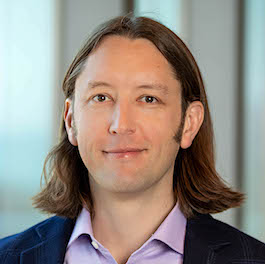Julius Lucks, Cellular Biosensors for Water Quality

Julius Lucks, PhD, associate professor and associate chair of chemical and biological engineering, is working on research directed at detecting water contamination by extracting and repurposing cellular biosensors.
His work leverages organisms’ natural abilities to sense and process information, much like computers do. “Many organisms can innately detect these toxic compounds. Biology has already solved this problem,” he said. “We thought, ‘Maybe we can repurpose those molecules for this application.’ ”
Lucks’ niche in synthetic biology transitions into the wider world by rewiring biosensors so that in the presence of a water contaminant, the sensor reacts in a visible way, such as changing the color of the sample.
This research has led to what Lucks describes as “pregnancy tests for water” that give people actionable information within minutes about the presence of 17 compounds such as lead and copper. The water test has found harmfully high levels of fluoride in Costa Rica, as well as toxic metals from melted cars after wildfires destroyed the town of Paradise, California.
The commercial viability of this work has led to Lucks co-founding a company called Stemloop with Center Director Michael Jewett, PhD, and CEO Khalid Alam, a former post-doctoral fellow.
In addition to developing the field test for water quality, Stemloop is also employing synthetic biology to create a field environmental test for COVID-19 for families, schools, and businesses to check for contaminated surfaces and water. This work, which is still in its developmental phase, has been supported by a $200,000 National Science Foundation RAPID grant as well as a $50,000 investment from Northwestern’s N.XT Fund.
Stemloop is the first company to be birthed out of the Center for Synthetic Biology. “We want this technology for the people who need it the most; people who are under-resourced,” he said. “Also, this is hopefully showing the world what synthetic biology can do—harnessing what nature has given us to improve our lives and, hopefully, the life of the planet.”